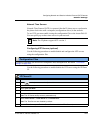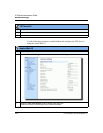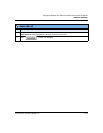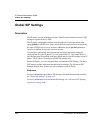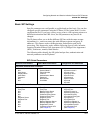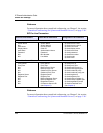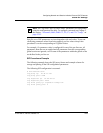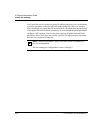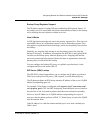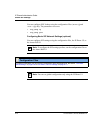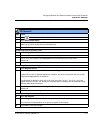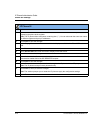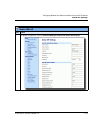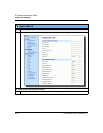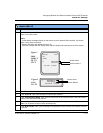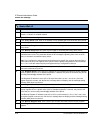
Global SIP Settings
41-001160-01, Rev 00, Releaes 2.3 4-71
Configuring Network and Session Initiation Protocol (SIP) Features
Backup Proxy/Registrar Support
The IP phones support a backup SIP proxy and backup SIP registrar feature. If
the primary server is unavailable, the phone automatically switches to the backup
server allowing the user's phone to remain in service.
How it Works
All SIP registration messages are sent to the primary registrar first. If the server is
unavailable, then a new registration request is sent to the backup registrar. This
also applies to registration renewal messages, which try the primary server before
the backup.
Similarly, any outgoing calls attempt to use the primary proxy first, then the
backup if necessary. In addition, subscriptions for BLF, BLA, and explicit MWI
can also use the backup proxy when the primary fails. Outgoing calls and the
previously mentioned subscriptions behave the same as registrations, where the
primary proxy is tried before the backup.
You can configure the backup SIP proxy on a global or per-line basis via the
configuration files or the Aastra Web UI.
SIP Server (SRV) Lookup
The SIP SRV Lookup feature allows you to configure the IP phone to perform a
DNS server lookup on a SIP proxy, a SIP registrar, or a SIP outbound proxy.
The IP phone performs an SRV lookup when the IP address of the server is FQDN
and the corresponding port is 0.
For example, if the phone is configured with sip proxy ip of "ana.aastra.com",
and sip proxy port of "0", the SRV lookup may return multiple servers, based on
the priorities if one is selected as primary and others are selected as secondary.
However, if the IP address is an FQDN and the corresponding server port is
non-zero, then the phone performs a DNS "A" Name Query to resolve the FQDN
into dot notation form.
If the IP address is a valid dot notation and the port is zero, then a default port
5060 is used.



